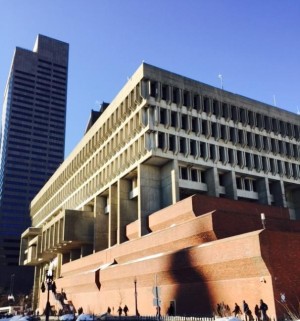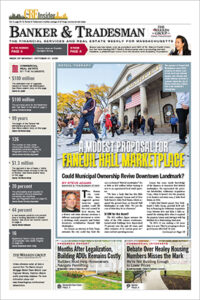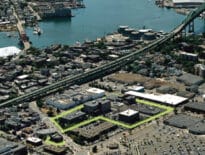The Boston City Council voted 10-3 Wednesday afternoon to ask the state legislature for permission to establish a transfer tax on real estate sales over $2 million to support affordable housing construction.
If the state grants the home rule petition, the city could establish a tax as high as 2 percent, with exemptions possible for a range of properties, that could generate at least $100 million and as much as $168 million per year, according to estimates from the office of Councilor Lydia Edwards, one of the measure’s two authors. After public hearings and opposition from real estate industry trade groups, the petition was rewritten to eliminate a 25 percent tax on properties sold two years or less after being bought, and the maximum possible tax was lowered from 6 percent.
Mayor Marty Walsh’s office has said he is supportive of the petition.
Under the petition, the money from any future tax would be dedicated to the city’s Neighborhood Housing Trust Fund, although the City Council would have the ability to redirect all or a portion of it to specific projects. Boston has had a linkage fee in place since 1987, which charges developers of large commercial products a $9.03 per square foot contribution to affordable housing creation, and an 13 percent affordable housing requirement citywide since 2015, with 20 percent required in the city’s most valuable neighborhoods.
Edwards described the petition as a “balance” that wouldn’t inhibit the growth of the real estate industry while generating meaningful funds for housing creation, and said the city was asking real estate interests to contribute to solving a regional problem along with city residents, a large portion of whose Community Preservation Act property taxes go towards affordable housing.
“Massive wealth is being generated” but it’s not going to those in need, Edwards said. “Housing is a common responsibility and those that generate wealth in our community should be part of the solution.”
Only Councilors Frank Baker of Dorchester, Marc Ciommo of Allston-Brighton and at-large Councilor Althea Garrison voted against the bill.
“I think the worst way to make housing more affordable is to tax it more,” Ciommo told the council.
“Do we not want people in our neighborhoods looking to make the neighborhoods better? Buying buildings that are decrepit, not healthy houses. Is that speculation,” Baker asked, adding that he would support the measure if instead it was funding city-built housing instead.
Both NAIOP and the Greater Boston Association of Realtors said they fear the tax could both discourage new construction and cause developers or buyers of buildings to pass on the cost of the tax on to their tenants.
Supporters of the legislation said the measure was needed because several suburban communities, including Somerville and Brookline, are asking the state for permission to pass similar taxes.
“There is this growing coalition. If we do not step up here in the city of Boston we become easy prey” for speculators, Councilor Kim Janey said.
Councilors noted how much home prices and rents dominate their constituents’ concerns.
“When you’re out on the doors, out in the neighborhoods it’s a matter of seconds, maybe minutes until the stress of housing comes into the conversation,” Councilor Michelle Wu said.
Several greater Boston and Cape Cod legislators have proposed expanding the state’s existing real estate transfer tax to benefit affordable housing construction, some of which could be combined into a single proposal to be heard early next year. In addition, Gov. Charlie Baker has proposed a 0.2 percent increase in the state’s existing real estate transfer tax that would generate as much as $137 million a year to help cities and towns prepare for and adjust to climate change.






